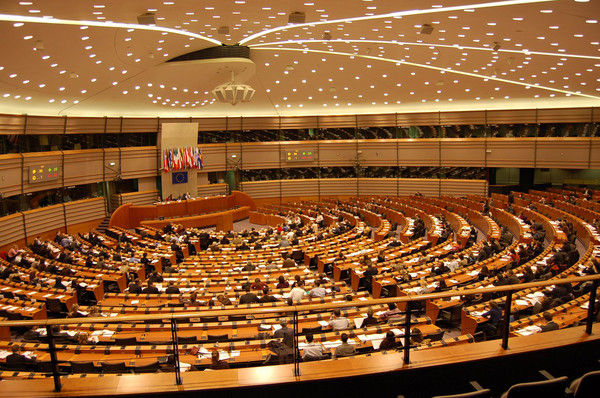
The Sector of Mechanization, a european challenge
The President of Italian machinery manufacturers, Massimo Goldoni, illustrates purposes and results of the meetings held in Brussels at the end of September. Technical regulations, fight to forgery and policies for research and innovation were in the programme of FederUnacoma within the European community
At the end of September the Italian Manufacturers Federation for Agricultural Machinery, the maintenance of the green areas, cut (earthmoving), and machinery components, FederUnacoma, held in Brussels its directorate and carried out an audition at the Parliament, with polititians and representatives of the European institutions, to focus on essential strategies and regulations concerning mechanization. On 24 and 25 September, members of FederUnacoma's Board of Directors met representatives from the Commission and the DG for Mobility, Automotive Industry, Research and Innovation as well as European commissioners for agriculture and industry, in order to focus the sector's problems and set priorities. The President of FederUnacoma Massimo Goldoni highlights how the presence within the European Community is an essential priority among the Federation's activities.
"We organized an intense two days' event that strengthened the relationship with European institutions and relaunched the most urgent actions for our sector. This was possible thanks to a long-term partnership with European institutions and the Manufacturers Committee CEMA. This partnership was estabilished almost 15 years ago when the Federation decided to open its own office in Brussels with the aim of monitoring in real time the developments of community policies. On the plus side we have a long activism in technical commissions in charge of developing not only regulations but also cultural and scientific events with the support of the European funds for research and education".
Can we say that the Federation has been one of the first enterprises within Confindustria to have developed a "European lobbying"?
"Yes of course, even though the word lobbying does not correspond exactly to the sense of our involvement. The Federation does not only aim to safeguard the sector's interests, but rather to promote a general mechanization policy. Technological innovation in agriculture, quality of life and work in rural communities, environmental safeguard, production competitiveness and an agricultural model of quality which Europe must represent on the world stage, are only possible through mechanization. This is a common goal for all countries and I have to aknowledge that our parlamentarians – among whom I am pleased to mention: Franco Bonanni Enviroment Commission; Paolo De Castro presidente Agricultural Commission; Elisabetta Gardini Enviroment Commission; Salvatore Tatarella Enviroment Commission; Giancarlo Scottà Agricultural Commission; Antonio Panzeri Internal Market Commission; Herbert Dorfmann Agricultural Commission; Patrizia Toia Industry Commission; Vittorio Prodi Industry Commission; Sergio Cofferati Employment and Social Affairs Commission – understood not only the Italian demands but also the strategical impact of this topic".
The increasingly important role of community institutions in agriculture, industry and environment involves the repositioning of the Federation's activities from Rome to Brussels and Strasbourg...
"As a matter of fact, our programme in the community is more challenging. At present we are working on some priorities such as the update of European regulations on exhaust emissions for the so-called "tight" tractors, fake machinery and import of machinery not compliant with European regulations. Forgery has a negative impact on those Italian enterprises manifacturing machinery for gardening and maintenance of the green areas. Italy is a leader in the sector and most of its investments are nullified because of the habitual violation of intellectual property rights by many foreign enterprises".
The most part of Italian export of agricultural machinery is concentrated in Europe. The export compensates partly the crisis that hit the Italian market.
We work in Europe with the purpose of relaunching the Italian system. We cannot accept the idea that internationalization in Italy corresponds to a process of relocation of its mechanical enterprises. As I said earlier, our enterprises must continue to get nourishment from their own territories, in order to be competitive on foreign markets. One the Federation's main goals consists in exploiting the opportunities from the European Union to support the market of mechanization – an example being the role of PSR (Programme for the Rural Development). Other goals consist in improving the access to European funds for the Italian agricultural enterprises and most of all reinforcing the production districts. European funds for research, education and innovation are at our disposal and we have to invest them as much as possible in our territory".








